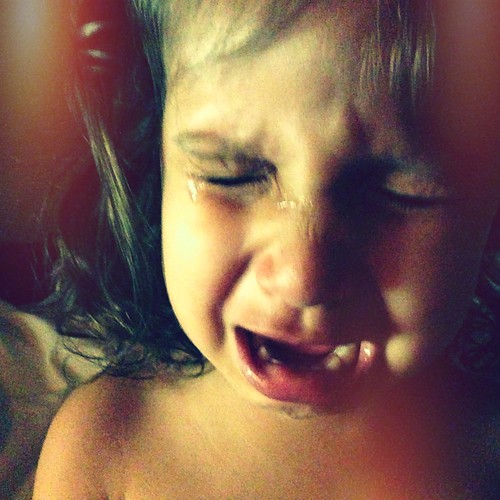In mid-August, I wrote a post to gauge interest in a possible Edtech-focused MOOC (Massive Open Online Course) to begin January of 2013. I received a handful of responses on my blog, dozens of Twitter replies (captured in this Storify), and (to-date) 142 individuals stated their interest in participating via this Google form. I believe there is more than sufficient interest in an Edtech MOOC, and so I am very happy to begin the development process. I am looking forward to those who have expressed interest and those we are likely to pick up along the way.
I thought I would share my ideas for the course. These ideas are informed by my initial thoughts on the MOOC (from my experience running #eci831 & blended courses), the growing body of literature on MOOCs (especially the cMOOC variety), informal conversations with individuals (theories, practitioners, students), and the many responses received through the process mentioned in the above paragraph. I also hope to make as much of the planning & development of the MOOC open & transparent so that others can understand and learn from decisions made around tools, technical processes and pedagogy. Thus, I will be doing my best to gather documentation, and I invite others to do so as well. I hope that the ‘making of’ the MOOC will be as valuable as the MOOC itself.
Ideas will be shared below. I will then copy the headers into an editable Google Doc so that facilitators/participants can write, edit, add feedback or sign-up for key roles.
What should this MOOC be about?
I am hoping that this MOOC will be developed on the topic of educational technology & media, a broad-ranging and continually expanding area of study. I believe that this MOOC can be relevant to all educators (P-12 school teachers, instructors, professors) and learners across a number of educational systems. As well, it is my hope that the MOOC is accessible and relevant to participants across the globe, wherever there is access to Internet technologies.
Some possible topics may include, but are not limited to the following (in no particular order):
- History of educational technology in teaching & learning.
- Relevant educational theories & integration models.
- Overview (how-tos & critique) of current gadgets, resources & web tools.
- Connected/networked learning and personal learning networks/environments.
- Mobile learning overview, strategies and resources.
- Learning management systems, overview & critique.
- Copyright, copyleft, mashups, remixes – overview & practical use.
- Digital citizenship, digital identity, footprint, ethics.
- Privacy, edu. business models, terms of service – what to know about web services.
- Digital storytelling & other non-literary modes of expression.
- Memes, viral videos, and how information spreads.
- 21st century literacies (whatever that means).
- Openness in education (Open educational resources, MOOCs, etc.).
- BYOD initiatives, responsible use policies, and other ed. leadership topics.
- Future of … (technology, schooling, education).
Again, these are just a few suggestions. I’m looking for your feedback. I think that once we refine the list, we can start scheduling and finding individuals willing to facilitate these topics (and others that have not yet been suggested).
Beyond the content itself (outlined above), I am hoping that the greatest benefit of this course will prove to be be participants developing resilient personal learning networks, forming the habit of connecting with others to facilitate independent learning goals (both planned & serendipitous), and nurturing online communities based upon sharing & transparency.
How should the MOOC be organized and/or facilitated?
It feels traditional, but I assume we will need to come up with a time-frame for this experience (start & end date, semester framework?) and methods of facilitating content/connections (e.g., live seminars, networked writing spaces, microblogging, newsletter, etc.). Other logistics needing to be discussed may include:
- the bridging of educational sectors (K12, university, tertiary).
- development of global nodes of activity, time-shifting, & having localized events.
- assessment (peer assessment, do we need assessment?).
- credit (badges, peer developed, localized approaches, no credit?).
- type of assignments (maybe something like DS106 assignments model?)
- development of peer mentorship relationship (support participants at various levels).
- involving the less connected (e.g., teachers at schools who would have never heard of a MOOC but could be supported & encouraged locally/globally).
- development of participant blogging (or other publishing) spaces to decentralize the learning environment.
- development of a common hashtag (#etmooc?) and other ways to aggregate data (such as Downes’ GRSShopper or tools like http://paper.li)
- a central aggregation site for course information (like http://eci831.ca)
- development of a research agenda/protocols/ethics for those wishing to study this experience.
- getting people interested & involved &Â sustaining participation & engagement to avoid MOOC dropout.
What do we need to make this happen?
- What tools & processes will we need to develop the content? Timelines? Responsibilities?
- What tools & processes shall we use throughout the course?
- Who shall we invite to facilitate? How do we develop localized nodes?
Who’s going to help, and what role will you play?
In the online form featured in my first post, I broke down participation into four major roles: development/planning, session facilitation, online mentors, participants. Obviously, individuals could choose more than one role. Am I missing anything?
For those who would like to help planning/developing this MOOC, consider signing up for the #etmooc Google Group. If you have a suggestion for a better place to collaborate, please let me know.
Thanks to everyone who is considering some form of participation in this experience. I look forward to working with you and making this experience beneficial for those interested in exploring technology & media in education.



